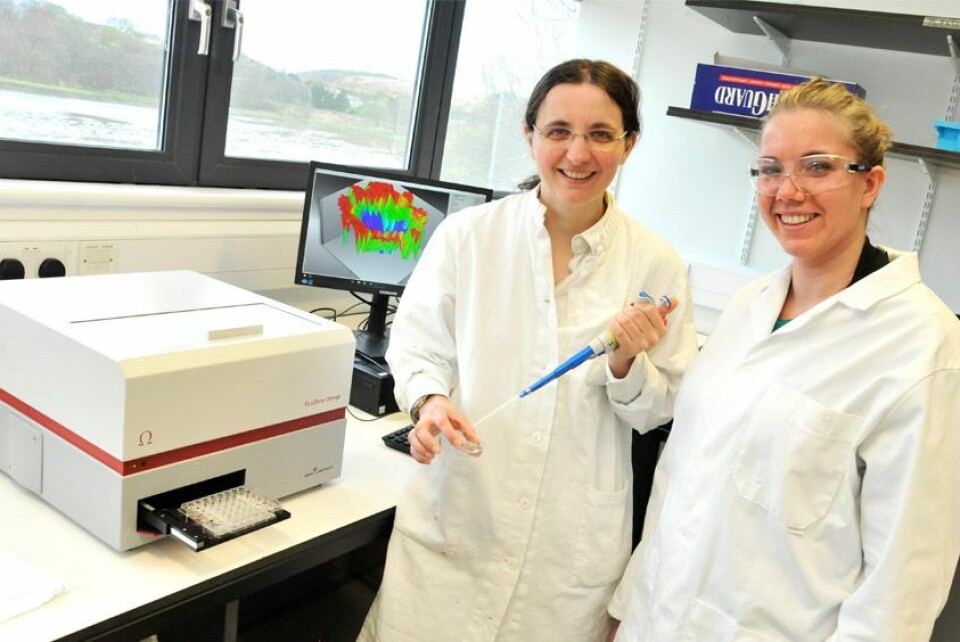
Seaweed scientists seek disease-resistant algae
The Scottish Association for Marine Science (SAMS) is to become the first organisation to use a hi-tech piece of lab equipment to help breed disease-resistant algae for the seaweed-growing industry.
Representatives from microplate reader instrumentation company BMG LABTECH have recently delivered a NEPHELOstar instrument to Dr Claire Gachon, senior lecturer in molecular phycology at the Oban-based marine research organisation.
In a novel application for this type of instrument, which detects insoluble particles in liquid samples by measuring forward scattered light, Dr Gachon will use the NEPHELOstar to measure biomass and determine which algal cultures are resistant to different diseases. This, in turn, will help SAMS breed seaweed strains most resistant to diseases.
‘Disease can be devastating’
Dr Gachon said: “We will use this state-of-the-art equipment to identify algae that are resistant to disease. We will then correlate the data with genotype information to find out which strains are the most suitable for breeding seaweed.
“This is important research for the seaweed industry globally; just like in land-based agriculture, disease can be devastating to the production line.”
This pioneering work is part of the GENIALG project, which aims to improve the genetic resources available to breeders for sustainable, large-scale kelp farming throughout the EU.
Catherine Wark, applications and business development manager at BMG Labtech, said: “This device is typically used by drug companies, so the work at SAMS is certainly a novel use of the technology.”
Dr Gachon believes that, beyond algae, the technology could become a mainstream tool for non-invasive measurement of biomass of many different types of aquatic organisms.






















































